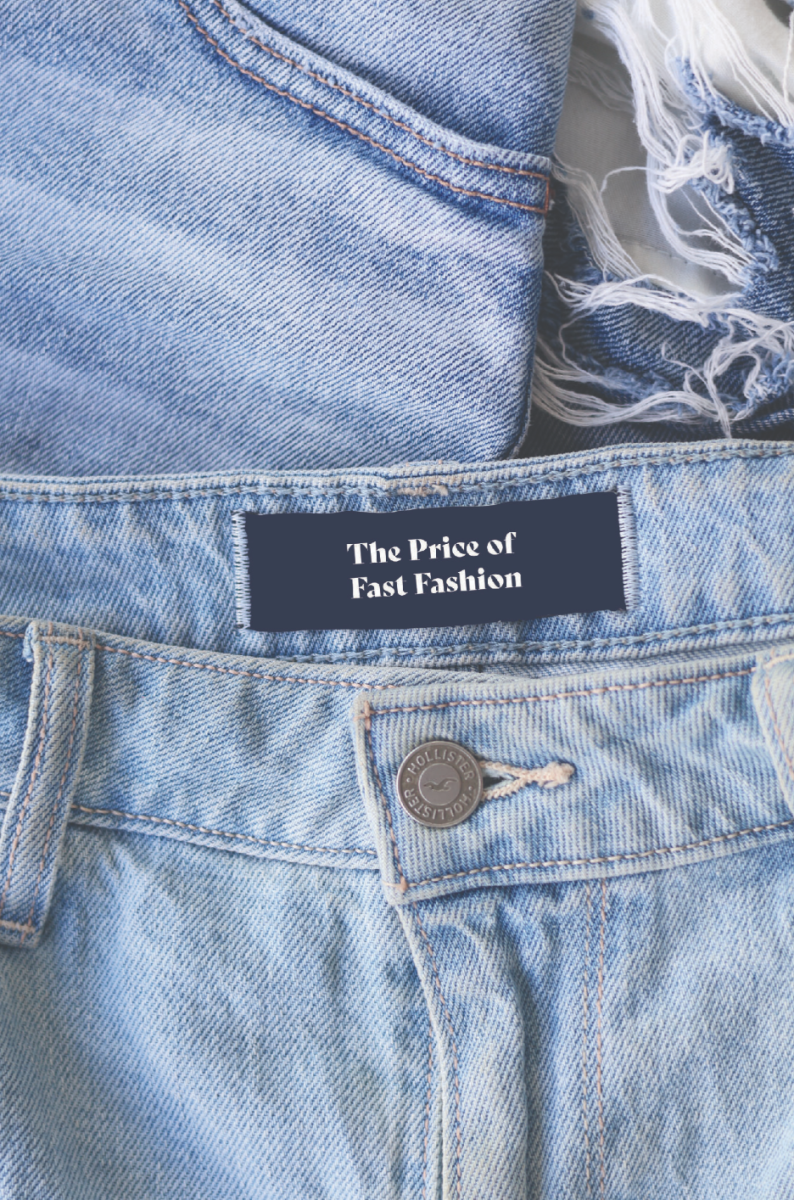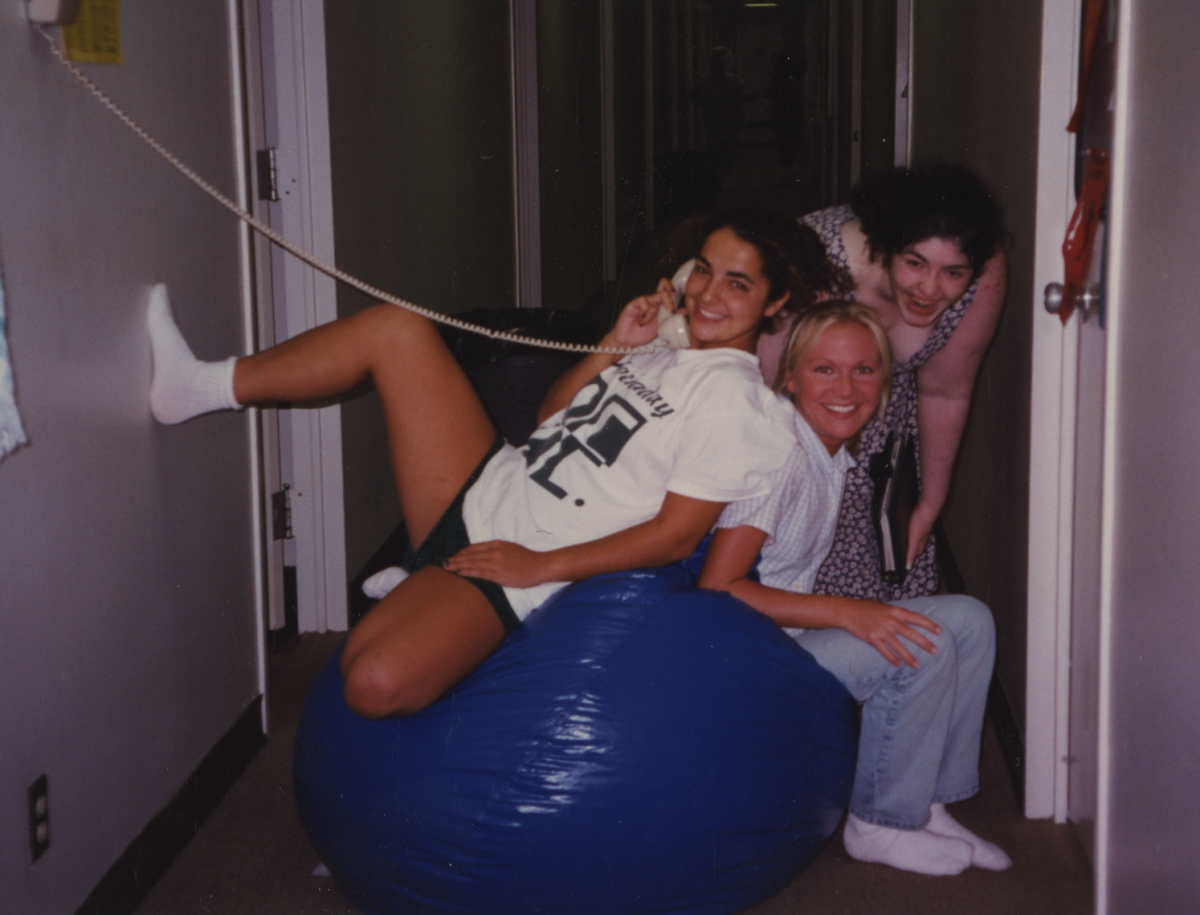Friends With Drawbacks
[img_reflect_left src=”https://hockadayfourcast.org/wp-content/uploads/2014/02/inside-main1.jpg”]
[dropcap]A current senior at Hockaday, who agreed to speak under the alias Stephanie, had the biggest crush on a boy last year. However, he said he was not ready for a relationship but just wanted to hang out, to be friends with benefits. She willingly agreed, secretly convinced that this would in time lead to a real relationship.[/dropcap]
“I said okay, but the whole time I was thinking, ‘Well maybe now he’ll like me.’ I mistook physical affection for some underlying emotional affection as well,” she said, “which of course it wasn’t.” Stephanie soon discovered that he had a girlfriend, and she was devastated. Left with a shattered self-esteem, she experienced firsthand the effects of hookup culture.
The hookup culture, as it is fittingly named, is defined as people foregoing traditional dating for casual, physically-orientated relationships.
Dr. Kathleen Bogle, author of the book “Hooking Up: Sex, Dating, and Relationships on Campus,” said the hookup culture, in a large sense, is a result of women entering the workforce. “In the 1950s, men got married around age 22, and women got married around age 20, so they were using their high school and early college years to find ‘the one,’” Bogle said. “Now that people are marrying in their late 20s on average, they think they have all the time in the world to settle down, which paves the way for casual hookups in the meantime.”
With girls also facing pressures to focus on school and careers, the hookup culture has found its way onto college campuses and now high schools, making dating and long-term relationships an anomaly. The time commitment and expectations a relationship demands have become too much for many full-time students to handle.
According to Campus Explorer, 33 percent of college seniors have been on less than two “real” dates in their four years as a college student, though 72 percent of the students interviewed admitted to having had a one-night stand.
However, while the world views this new culture as having “no strings attached,” The Fourcast investigates the real-world implications it has for both girls and society.
Self-Esteem

[dropcap]Having just broken up with her boyfriend, a girl can resort to a quick hookup. Either to brag to their friends or maintain a reputation, girls can often seek quick self-esteem boosts in casual hookups. A freshman student, who agreed to speak under the alias Ruby, said that she has watched many of her friends go through this cycle. “They think that they can fill the void, and by hooking up they can make that go away,” she said. “It’s almost the opposite though.”[/dropcap]
In fact, many people emerge from physical relationships with lower self-esteem. In a January survey sent out to the Upper School, 49 percent of students said that they saw lower self-esteem as a negative consequence of the hookup culture.
Form IV Dean and Upper School Health teacher Rebekah Calhoun spoke to this concern, worrying about how this culture has impacted the way girls see their own self-worth. “[In the hookup culture] we are not requiring any effort even if for a short period of time from that person; there is no investment,” Calhoun said. “In this, I think we do ourselves and boys a disservice in saying that neither of us is worth the effort, and I think that’s a very problematic way for people to see themselves.”
Calhoun said that the problems in self-esteem stem from the fact that many girls were in pursuit of a real relationship before settling for just hookups. Stephanie can attest to that.
In 2011 alone, two movies came to theaters with the plotline of physical-only relationships: “Friends with Benefits” and “No Strings Attached.” In each, two friends agree to have an exclusively physical relationship before one inevitably falls for the other. The result? Heartbreak and chaos. These movies reinforce the point it is very difficult for humans to completely separate emotionality from physicality. “I do think as social beings we all have that need for belonging and love,” Calhoun said. “Every time we make a connection that maybe isn’t reciprocated, we start to question ourselves and what we did wrong, and I do think that can cause some sort of emotional turmoil.”
Calhoun also believes that this culture has the ability to make girls compartmentalize themselves, only see worth in their physicality or outward appearance and devalue the person they are. “When people divide themselves like that, and then it’s validated by relationships in which people are valued solely on one or the other, this becomes a pattern. It becomes unhealthy,” she said.
Ruby said that the hookup culture can cause girls to see their outside appearance as more important than their inner qualities. “I think if the guy doesn’t want more, girls will realize that the guy doesn’t have an emotional connection to them, and that all he cared about was their looks,” she said. “That doesn’t feel great at all.”
Speaking from personal experience and having observed friends, Ruby explained that girls can, as a result, just see themselves as physical beings, caring only about outward appearances rather than inside characteristics or personalities.
Fear of Losing Respect
[dropcap]Walking down the hallways on Monday mornings, it is not uncommon to hear the whispered stories of the past weekend’s events. “She hooked up with whom?!” and “Literally everyone was making out.”[/dropcap]
However, these are still whispers. Girls are still not completely opening up to friends or peers about their hookups.
In fact, only 14 percent of Upper School students believe that hooking up is the most common type of relationship at Hockaday, even though nearly one-third of girls are in or have had a no strings attached relationship. The discrepancy? Calhoun suggests that it comes from the fact that hookups are still not accepted as the norm. An element of shame and guilt still exists in a culture that at first glance seems accepting.
“We have this new sense of freedom and liberation and feel like we can hook up with whoever we want, but have we come far enough that it’s something to be open about?” Upper School Guidance Counselor Margaret Morse said. “I don’t think we are truly there.”
In the same survey, 52 percent of girls listed feelings of guilt and embarrassment as a negative consequence of the culture, and 70 percent listed losing respect from peers. When girls are still judging each other for this behavior, it is hard for them not to feel guilty or embarrassed, explained Calhoun. There is not enough shame, however, to keep girls from taking part in these relationships but enough shame that they do not talk about it.
Stephanie explained that there is a stigma at Hockaday about hooking up, one that she has felt the wrath of. “I got a reputation last year because I made out with two guys that I wasn’t dating. After that, people believed a lot of the gossip around and about me,” she said.
Bogle believes that the root of this problem can be traced back to the double standard that exists in these types of relationships. “Women’s behavior is scrutinized at every level of the hookup scene,” she said. “So, men who hookup a lot are called ‘players’ while women who do the same are called ‘sluts.’”
Bogle said that it is difficult to categorize the hookup culture as a positive change when women’s self-esteems and reputations are still at stake.
“I think guys talk about that, and I question what level of respect they have for that young lady. She may think she’s very popular, but popular for what?” Calhoun said. “It doesn’t seem that the package that is the hookup culture comes with a lot of mutual respect.”
In the Long Run
[dropcap]In the movie “What’s Your Number,” protagonist Ally Darling (played by Anna Faris) reads in a magazine that 96 percent of women who have had more than 20 sexual partners in their lifetime will never get married, a result of being too emotionally damaged. Having had 19 partners herself, Ally resolves to revisit all of her exes in hopes of never reaching the notorious 20. The entire plotline focuses on the fact that if Ally exceeds 20 partners, she will not be able to find “the one.”[/dropcap]
Morse does agree, while not to the extent of the movie, that the ability to maintain future relationships can be impaired by the hookup culture. “We are social beings and what I worry about as developing humans, as teenagers in the midst of identity development, you are figuring out who you are in relation to other people, and the hookup culture is kind of postponing that. It halts that part of psychological development, pushing it into your 20s and 30s,” Morse said.
This psychological development can include knowing what characteristics you like in other people, being able to compromise, communicating thoughts and feelings and maintaining a sense of identity during relationships.
In her book “Unhooked,” author Laura Sessions Stepp explores how casual relationships can fundamentally impair the way girls approach long-term relationships and even marriage.
“The traits that characterize good marriages are firmly established and include trust, respect and, more than anything else, commitment,” Stepp said in her book. “Hookups are about anything but these qualities. It’s as if young women are practicing sprints while planning to run a marathon.”
Senior Natalie Ng is currently in a relationship that has spanned all four of her years in high school. “I think there’s a lot that I’ve learned. You don’t go into it knowing how hard it’s going to be especially for three and a half years, but there’s a lot of give and take and you have to work at it,” Ng said. She does believe that she has learned valuable skills from being in a partnership, whether that be a friendship or relationship.
Still Empowered?
[dropcap]Despite all of the negative consequences of the hookup culture, 75 percent of the Upper School students still see the hookup culture as an advancement for women in society. “Women’s sexuality isn’t taboo anymore. How can that be anything but progression?” senior Kellen Weigand said. She explained that despite potential consequences, women are finally allowed to do what men have been doing for ages. “Guys have been having casual hookups forever. I think we are playing catch-up,” she said. “I just think it’s continuing that trend of women saying that we can do whatever men do.”[/dropcap]
Stephanie, even with her fair share of bad experiences with physical relationships, said that this was a positive change for women. “It’s empowering to know that women can ask for what they want, and just because it didn’t work out for me, doesn’t mean it won’t for others,” she said. “There’s choice now.”
The hookup culture, while a step towards more casual dating, is first and foremost a step away from traditional dating, Morse said. And with this step, girls are not prioritizing relationships before everything else. “I do think it is great progress that women no longer put so much weight or value into defining who they are by their relationships,” Morse said. “Girls are not just going to college to get their ‘Mrs. Degrees’ but to learn and pursue their own careers.”
Though detrimental at times, the hookup culture also has benefits. “The positive of casual relationships is it allows people to concentrate on other aspects of their lives, such as family, friends, school, sports and extracurricular activities,” Bogle said.
The hookup culture is allowing girls to see who they are outside of their relationships, pursue other interests and have fun being single, explained Morse. She described it as one more essential step for women on the road to equality. “It’s necessary to continue the conversation about women and men. I totally understand why the pendulum has swung to where it is now,” Morse said. “It’s just one temporary step on the way there.”













